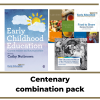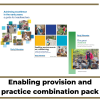Making effective use of Early Years Pupil Premium
About the project Early Education received funding from the Department for Education under its 2015-16 Voluntary and Community Sector grants programme, for a project to
Schools have been receiving Pupil Premium since 2011 and there is much material available to us to learn from. There are reviews on the Ofsted and DfE websites. Schools display their spending plans on their websites. There have also been Pupil Premium awards. These materials can help guide our thinking but we don’t have to follow them implicitly.
Awards in 2014 were given to schools who had developed a range of strategies to support vulnerable children and families. The strategies included some of the following:
Ofsted have evaluated what they feel makes the difference in regard to how Pupil Premium is spent. The list below sets out some things to consider with regard to EYPP. The examples used here illustrate how the early years sector could use this information to suit our priorities.
Some of these strands will require little or no investment but may require a change in attitude from staff. These strands contribute to good quality early years practice.
About the project Early Education received funding from the Department for Education under its 2015-16 Voluntary and Community Sector grants programme, for a project to
Allocated funding Government sets the rate of Early Years Pupil Premium as part of the allocation of early years funding annually. How EYPP works Children who
There are a range of sources that can help you to refine your decision making processes in regard to EYPP. This list is not exhaustive.
It is important to be able to justify the choices you make as to how you spend the EYPP money. The focus needs to be
Here are some ideas of how you might spend the EYPP funding. It is important to think about which option(s) are most relevant for your
It is important to include families in helping to shape your decisions in relation to developments you want to make. Families know their circumstances best
The small amount of the EYPP funding per child means that partnership working will be a key way to making your funding go further. Especially
In most cases, sound early years principles and practices are already in place in settings. The EYPP funding allows settings to review and refine what
When justifying your EYPP expenditure it will be important to monitor at two separate points ie a starting point and again after the intervention. There









Early Education
2 Victoria Square
St Albans
AL1 3TF
T: 01727 884925
E: office@early-education.org.uk